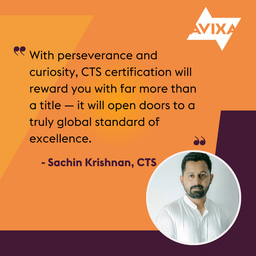Unleashing Confidence: The Power of Personal Branding
I am a strong believer and advocate of Ikigai. Ikigai is a Japanese concept that translates to "a reason for being" or "a reason to wake up in the morning." It emphasizes finding the intersection of what you love, what you are good at, what the world needs, and what you can be paid for. Essentially, it's about discovering your purpose and finding fulfilment in life by aligning your passions, talents, contributions to society, and financial stability.
So, what does personal branding have in common with Ikigai?
I participated in branding expert @Jessie paul 's keynote session on Personal Branding during the first edition of this year’s APAC Member Forum. I've long admired Jessie's talent for simplifying intricate marketing and branding concepts with interesting personal anecdotes, making them accessible to individuals regardless of their background in marketing.
Through this session, I uncovered more of the connection between Ikigai and personal branding which complement each other by helping individuals discover their purpose, articulate their unique value, and ultimately, achieve success and fulfilment in their personal and professional lives.
I am excited to share the deck that was presented during the session and also key takeaways from the session.
Why create a personal brand:
Many of us have been raised to downplay our achievements, and there might be a concern about balancing building our brand with avoiding coming off as boastful. It begins with recognizing the fundamental truth that everyone operates as an entrepreneur in some capacity.
Establishing a personal brand has become essential in the age of AI. Your employability hinges on your capacity to distinguish yourself from the competition, not only among other individuals but also as a unique personal brand.
When you have built your personal brand, it instils trust in people when you're making decisions.
Building your personal brand opens opportunities to connect with more people and establish meaningful connections.
How to build your personal brand:
The model that Paul suggests is as simple as ABCD - Added Value, Behavioral change, Complexity and Diffusion
- Added value - What unique value do you bring to the customer? What distinct skill set sets you apart and should be exclusively yours?
- Behavioral change- The adaptability you demonstrate in any workplace makes it easy for people to collaborate with you.
- Complexity- Simplifying your Point of View (PoV) and addressing complex topics, challenges at workplace and business matters make it easier for people to understand and relate to you.
- Diffusion- If you're not heard and seen in the media, you cannot effectively build a personal brand. Choose the right forum/platform or media and make yourself heard and seen in a consistent manner.
Brand positioning is a well-known concept in brand and marketing circles, but it was eye-opening for me to realize that it also applies to individuals. If you opt not to cultivate a personal brand, you'll essentially be labelled based on how others perceive you in the corporate world, where individuals are consistently categorized and labelled.
Furthermore, rituals for example (periodically sharing your PoV in media) and symbols (affinity to a certain style of dressing or colour) go a long way in creating your personal brand that stands out and become a mainstay with your personal brand.
To initiate the process of building your personal brand promise, begin by defining who you are, why others should choose to work with you, and what sets you apart from others.
Extending the 4Ps marketing model (Product, Price, Place, Promotion) into defining your personal brand is also a valuable starting point.
Finally, having a superlative is essential! Using a template shared in the deck to identify your superlative is an excellent tool for defining what makes your personal brand stand out (especially in discussions during pay hike or promotion) and building self-affirmation. The method to building a personal brand is consistency and relevance.
In summary:
Even if you're not inclined to develop your personal brand at this moment, consider doing so for the benefit of future generations. Success in branding is achieved when you are recognized by your personal brand rather than solely by the organization you represent.





Please sign in or register for FREE
If you are a registered user on AVIXA Xchange, please sign in